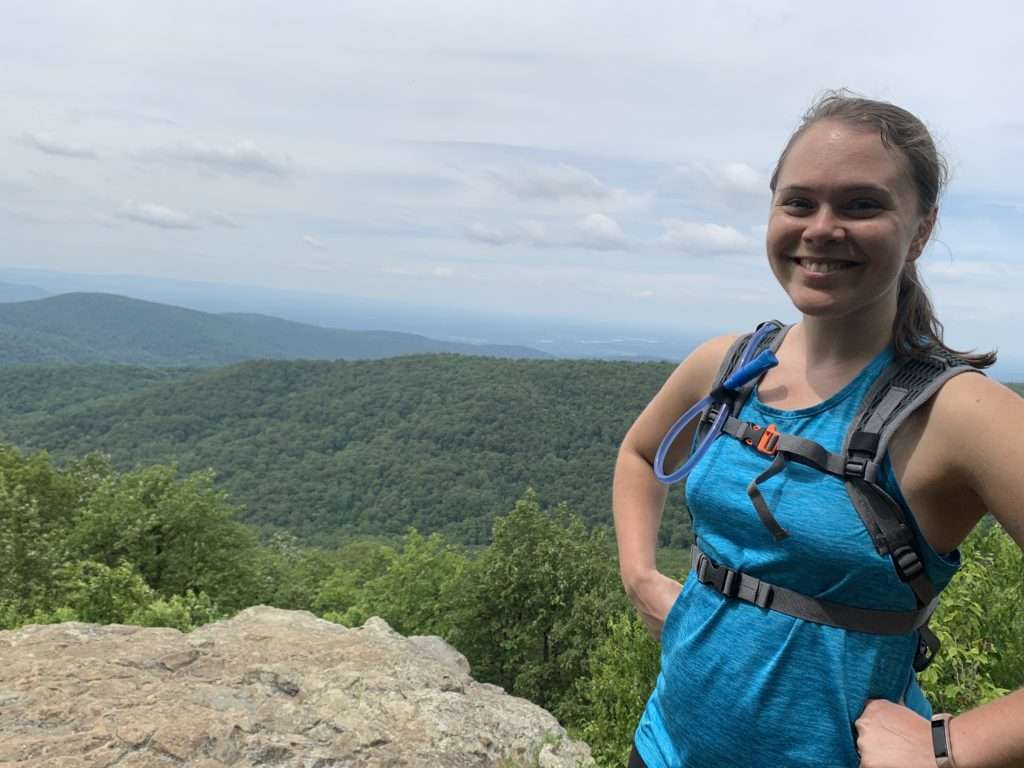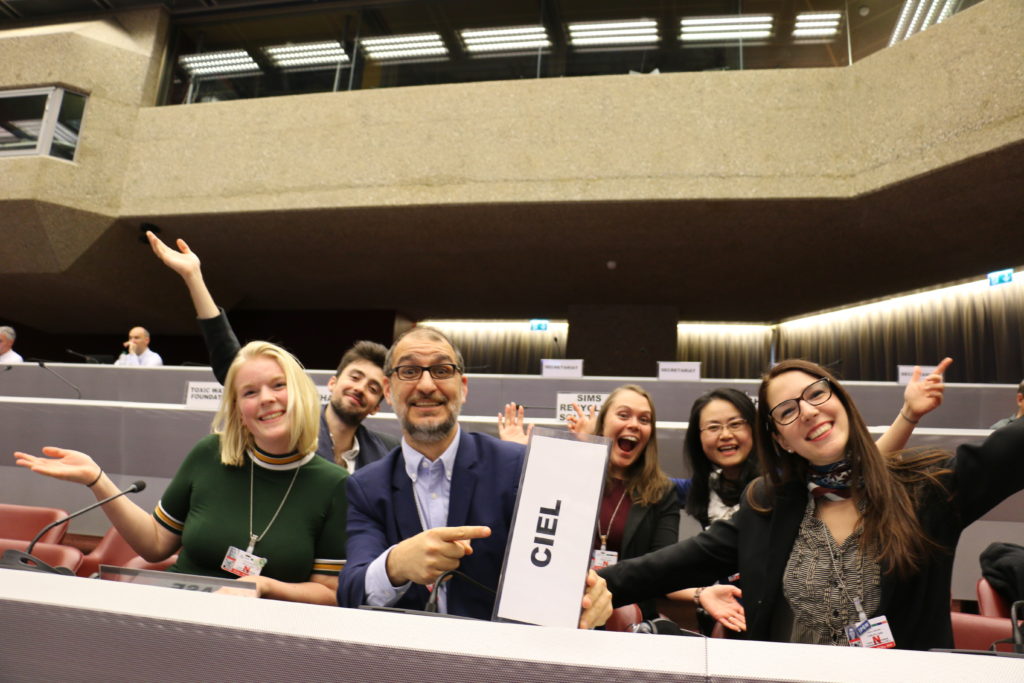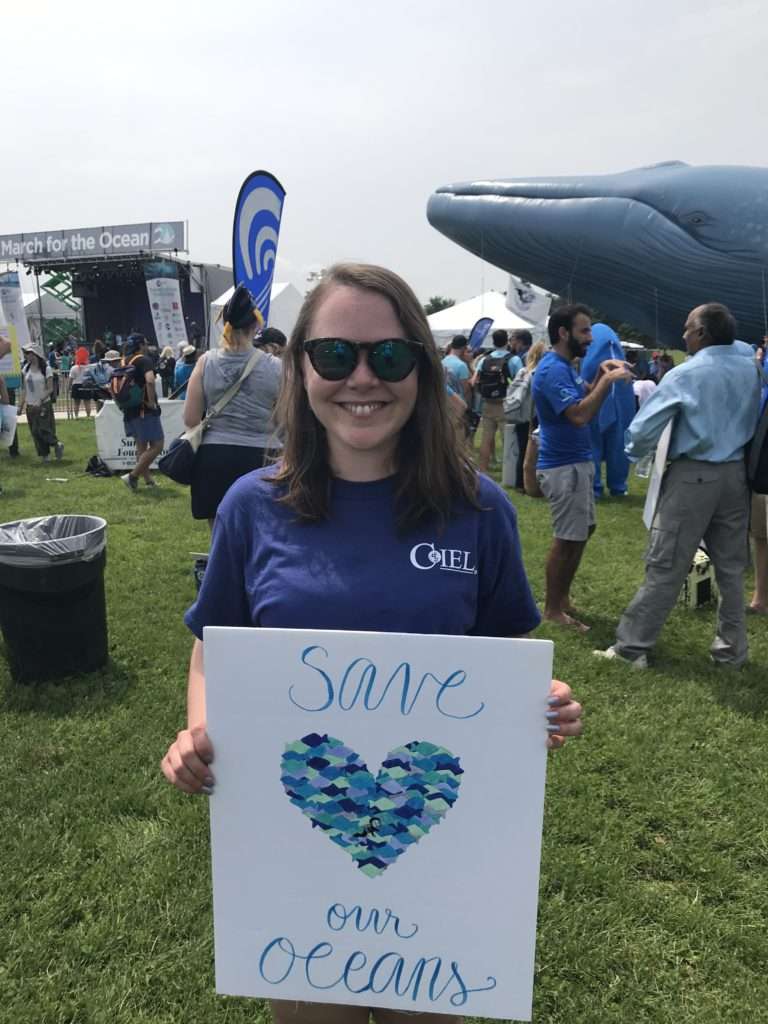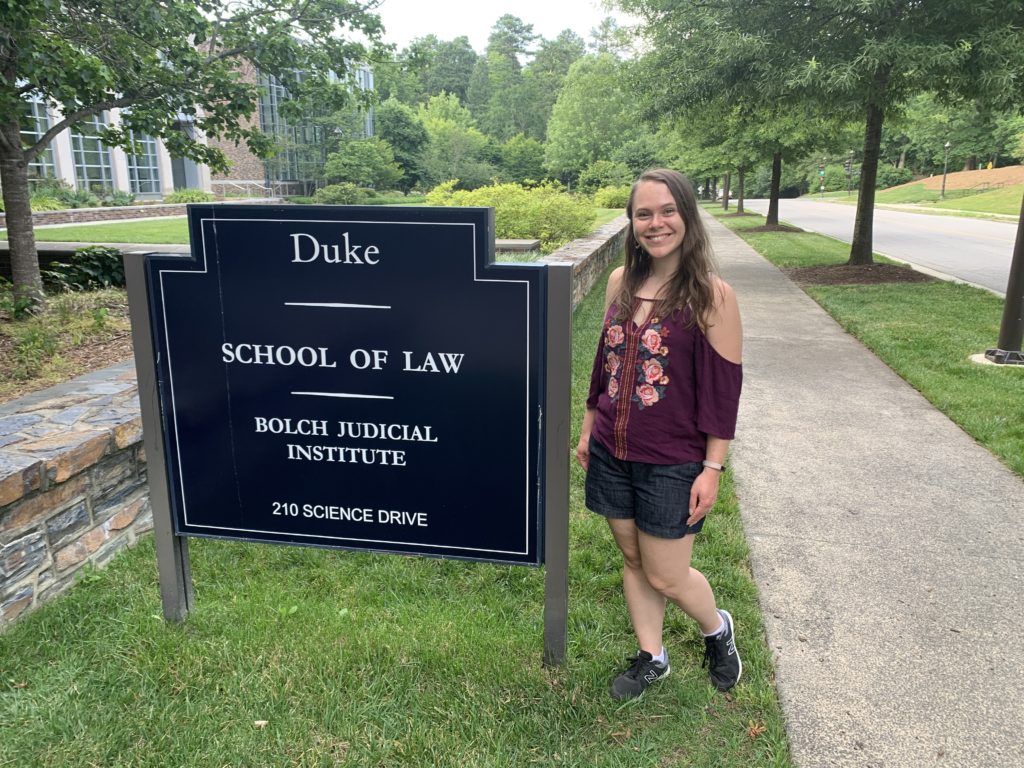
Here at the Center for International Environmental Law (CIEL), we know our strength comes from the people who make up our movement — from our staff, to our partners, to our steadfast supporters. Our “Meet Our Staff” series will introduce you to some of our amazing staff members, who work behind the scenes every day to defend the right to a healthy environment.
Marie Mekosh is a Communications & Development Associate at CIEL, who has previously worked as a Research Associate for the US Competitiveness Project and as a Partnership Director at Project Lever. We spoke with Marie about the transformational power of law, how challenges in climate work can be turned into opportunities, and more.
Tell us about the work you do at CIEL.
Marie: I’m part of CIEL’s communications and development team, so I communicate the work that CIEL does to a broader audience — from translating complex legal work and making it more accessible, to coming up with new ideas for how to engage people in the work we’re doing. Day-to-day, that means I’m one of the people behind CIEL’s email newsletters, blog posts, fundraising pitches, and action alerts, among other things.
What is one of your favorite memories from work?
M: One of my favorite memories from work was going to the Conference of the Parties (COP) to the Basel, Rotterdam, and Stockholm Conventions last year. At the COP, countries took an important step toward tackling plastic pollution, requiring exporting countries to get consent from importing countries before shipping most types of plastic waste. Prior to this decision, countries were exporting a lot of toxic or unrecyclable plastic waste, without many restrictions. So, this was a really important step in making sure that states can reject plastic waste that they can’t safely manage — and therefore, better protect their people and the environment.
Oftentimes, international law can be slow. But this decision was really exciting because it showed how, when 187 countries recognized a global problem and came together to solve it, the law was able to move quickly to address an urgent need. Witnessing this in action showed me how transformational the law can be.

Why do you think the work you do/CIEL does is important?
M: CIEL works at the intersection of the environment and human rights. One of the things that makes us special within that space is that our lawyers are not just doing cutting-edge legal work — they’re also actively working to empower people and bring their voices into the spaces in which we work. For instance, CIEL works directly with affected communities to make sure that they’re able to participate in these spaces, and we also produce research materials that can be used much more widely by other members of the movements we’re a part of. We’re a small organization, but we have a large impact — precisely because we’re focused on bringing more people in and sharing resources so that others can use them in their own advocacy.
The communications team plays an important role in this work, as a connector between CIEL and the broader public. Often, CIEL is working in places that have been traditionally closed-door or inaccessible. It’s exciting to work to provide visibility into these spaces, so that others can learn and get involved. And through our communications tools, we can also open up real, concrete ways for people to take action and make their voices heard.
What do you think is the biggest challenge facing the movement right now? Biggest opportunity?
M: I would say the biggest challenge right now is that there are some strong vested interests in this space who often stand in the way of progress — whether it’s a large multinational corporation or an individual in power who benefits from the current system. These actors have a lot of resources to come out and oppose change or water it down to small, surface-level reforms.
But in spite of that, I feel heartened by the wave of people power I’ve seen in recent years. And that’s where I see our biggest opportunity — in the massive movements of people who have come out to demand real change. The millions of children participating in climate strikes around the world are just one example, and they give me hope for the future. Even in my personal life, people who’ve never really talked about the environment or human rights before are now starting to talk to me about plastic, climate change, and social justice issues. It feels like we’re in a moment where there’s a lot of energy. I’m hopeful we can channel that to really create meaningful systemic change.
For someone who’s looking to make an impact on the environment, what do you think are the best ways to get involved?
M: I think personal actions are a great way to demonstrate that a new way of living is possible. And beyond that, there are also important ways for individuals to encourage change at the systemic level, such as: getting in contact with your local, regional, or national policymakers to demand stronger laws and regulations related to the environment and human rights. This also means calling out companies who don’t have good environmental and human rights protections (and social media can be a great forum for that!) By engaging those decision-makers, we can show that there is a demand for change and that we’re not going to stand idly by.
What do you like to do in your free time?
M: In my free time, I like to read, hike, and scuba dive. I also love doing arts and crafts, especially calligraphy!
What book are you reading right now?
M: I just finished a book called The Fifth Season by N.K. Jemisin, part of the Broken Earth trilogy. In my opinion, the best fantasy books are ones that aren’t just escapist, but that reflect back themes of our society that we’re sometimes too embedded in to see clearly. The Fifth Season deals a lot with themes of oppression, our relationship to the environment, and a lot of other topics that are really relevant today. I’m excited to read the next books in the trilogy!
What is your [secret] superpower?
M: I’m pretty good at making protest signs! I’m not the best artist, but I think being detail-oriented helps a lot.

So I hear you have some exciting news! What plans do you have in store?
M: Yes, after nearly three years at CIEL, I’ll be leaving the team to start law school at Duke this fall. My time at CIEL really helped inspire me to become a lawyer, and I hope to someday dedicate my own legal skills to work toward a more just and sustainable world. I’m sad I won’t see my amazing colleagues every day anymore, but I know that I’ll continue to be part of the CIEL family even after I leave!

Interviewed by Owen Torrey, Communications Intern
Originally posted on June 18, 2020
